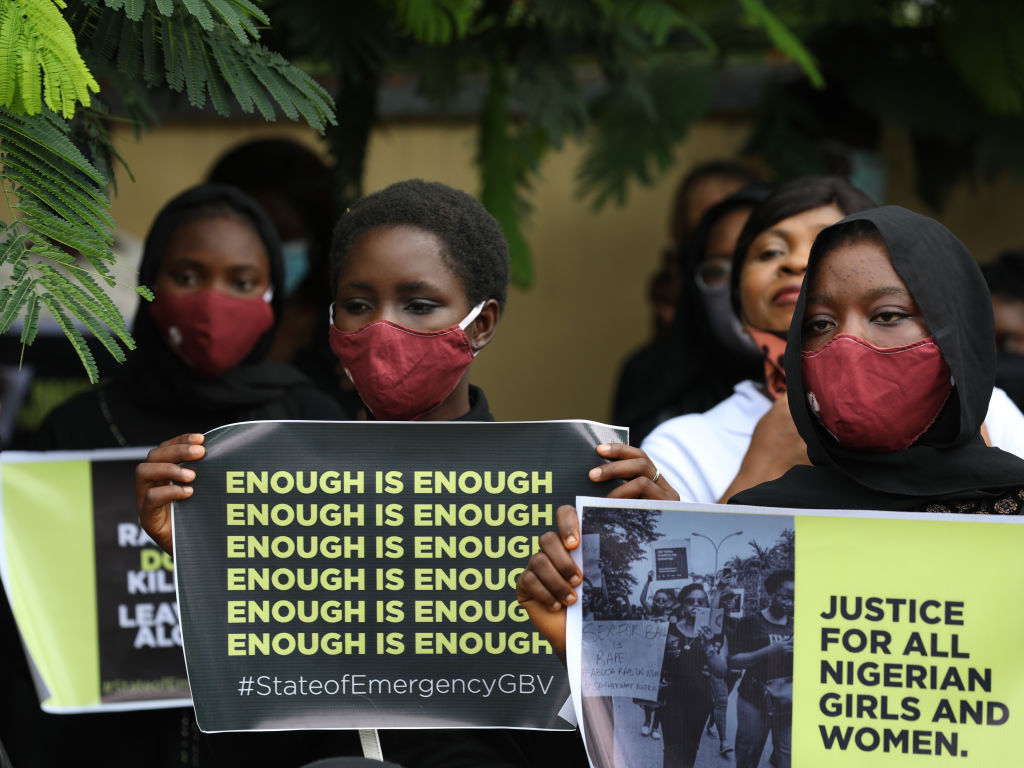On July 17 2023, Nigerians on social media were shocked when a 26-year-old famous Instagram influencer confessed to killing his girlfriend on a Post he made online.
Benjamin Best, popularly known as Killaboi, a millionaire punter who always shared his lavished lifestyle with his thousands of followers, said he quarried with his girlfriend and then “mistakenly” stabbed her.
He was engulfed in an argument with Augusta Osedion when he ‘mistakenly’ stabbed her. Best then fled the scene. Best and Osedion had been in a relationship for three years. Osedion, a 21-year-old, was a model and influencer, and both had flaunted their relationships online.
Before his confessions, Augusta had been reportedly missing for days. It was said that Augusta’s mother had gone to Benjamin’s house to look for her daughter. Eyewitnesses further claimed that the police gained entry and found a corpse.
In a similar incident, Last year, Geng Quandong, a 47-year-old Chinese man, allegedly killed his 22-year-old lover, Ummukulsum Buhari, for no longer wanting a relationship with him.
According to the mother of the deceased, Lami Shuaibu, “He [the Chinese man] always comes around wanting to see her and she has been refusing. When he came, he kept knocking on the door this time. When I was fed up with him hitting the door loudly, I opened the door, and he pushed me aside, got in, and started stabbing her with a knife.”
Incidence like these is not limited to unmarried lovers; in April last year, a 42-year-old, famous Nigerian gospel singer died at a hospital in Abuja, and days later, her husband, Peter Nwachukwu, was arrested over allegations that he had been abusing the singer.
Nwachukwu has been charged in court and has denied all allegations.
Nigeria’s abuse of women
In Nigeria, where divorce or separation is frowned upon, men have been known to get away with violence against their partners. UN data shows that 23.2% of women in Nigeria have, at some point in their lives, experienced violence from their partners. The issue worsened during the pandemic when about 48% of women in Nigeria experienced one form of violence.
According to the Center for Relationship Abuse, Awareness and Action, partners exact violence on their spouse because of a “ sense of entitlement, a belief they should have power and control over their partner, a belief that they can get away with it, learned experience that being abusive gets them what they want and belief that their lives should take priority.”
This violence against women is driven by discrimination towards women and girls and harmful social norms. This tragically robs a girl or woman of her life. In addition to the finality of this cruel act, many females suffer multiple acts of violence, emotional abuse, isolation, and traumas in the hours or months before they are killed.
Any attempt to stop gender-based violence?
There have been many attempts to curb violence against women in Nigeria, from policies and laws to women holding protests nationwide.
In 2015, Nigeria passed the Violence Against Persons Prohibition Act or VAPP Act, and the law was particular about its intention to end spousal violence in private and public life. The law also was to provide the maximum protection, effective remedies for victims and punishment of offenders and related matters. However, this Act is applicable in some but not all of the 36 states of Nigeria.
But after the law was passed by the National Assembly and assented to by the President, some states refused to domesticate it, and those that domesticated it dragged their feet with its implementation.
Complaining about this, the then Minister of Women Affairs, Pallen Tallen, said, “SGVB still persists because we seem to have a problem with the justice system; justice delayed is justice denied. We are appealing to the justice system to act fast” she said.
In November 2020, thousands of women across the country poured out to the street, protesting against sexual based violence and calling on authorities to expedite action on the safety of women in the workplace, their homes and public places.
Despite all this, in the first four months of 2022 alone, about 335 persons experienced different forms of Sexual and Gender-Based Violence (SGBV) across Nigeria, and it was no shocker when Nigeria ranked 130 out of 146 in the global gender gap index.
While Nigerians were recovering from the shock of the public confession to Osedion’s murder, the police command in Cross River State yesterday confirmed the arrest of a 54-year-old man who had beaten his lover to death, again pointing to the need to do more to protect women.
On July 17, 2023, Nigerian social media was stunned when 26-year-old Instagram influencer Benjamin Best, known as Killaboi, confessed online to killing his girlfriend, Augusta Osedion, during an argument. Osedion, a 21-year-old model and influencer, had been missing for days before her body was discovered at Best's house. This incident echoes other violent cases in Nigeria, such as the murder of Ummukulsum Buhari by her Chinese lover and the death of Nigerian gospel singer allegedly due to spousal abuse.
Violence against women in Nigeria is alarmingly common, with UN data indicating that 23.2% of women have experienced partner violence, which surged to 48% during the pandemic. The Violence Against Persons Prohibition Act (VAPP) of 2015 aims to address this issue, but its inconsistent implementation across Nigeria’s states hampers its effectiveness. Former Minister of Women Affairs, Pallen Tallen, highlighted the sluggish justice system as a barrier.
Despite protests and laws, gender-based violence persists, as evidenced by 335 reported SGBV cases in the first four months of 2022 and Nigeria’s low ranking of 130 out of 146 in the global gender gap index. Recent events, including another murder by a lover in Cross River State, underline the urgent need for better protection for women in Nigeria.






